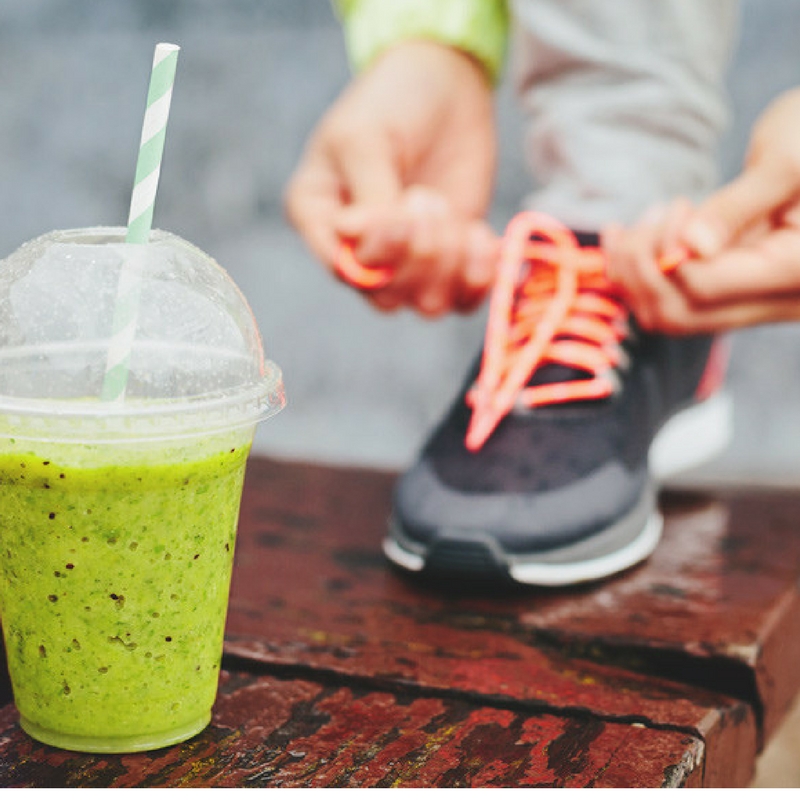November 3rd, 2014
Foods For Refueling Your Workout
 I am always awe inspired by the millions of amazing athletes that run marathons, and so I’m always thinking about how I can help them to refuel as a nutritionist (Dietitian).
I am always awe inspired by the millions of amazing athletes that run marathons, and so I’m always thinking about how I can help them to refuel as a nutritionist (Dietitian).
Although I’m not an elite runner, and like to consider myself more of a cross-trainer, I find that my ability to exercise on daily basis is dependent on how I refuel. So as many of you, who like me are inspired when you see elite athletes train, I hope you’ll take some of these refueling tips with you for your post-workout snack.
Exercise and nutrition are two of my favorite topics to discuss, especially when talking about their importance to one another. Yes that’s right, nutrition and exercise go hand in hand. While most of us know that, there’s a lot of information and sports nutrition products out there geared towards consumers that can cause confusion on what we really need and when. Let’s break it down:
What You Need
Most of us only need a bit of extra water in our day when we’re active. Many of us gym-goers (think 30-45 minute on an elliptical or a light to moderate gym class) pick up fancy sports drinks and bars to refuel exercise bouts that aren’t really worthy of a refuel. Unless we’re doing 45-60 + minutes of high intensity exercise, or 60+ minutes of endurance exercise, you should stick to water.
For those of us who need to refuel:
For those of us doing 45-60+ minutes of high intensity exercise or 60+ minutes of endurance exercise like running or biking, it may be beneficial and even necessary for you to think about how you’re fueling your body for this workout.
Three Ways to Fuel Naturally:
1.) Pre-workout:
Think about keeping it simple. Anything your body can break down quickly will give it extra energy if consumed within 30-60 minutes of exercise; anything that’s too heavy may cause cramping and discomfort. Some of us can get away with eating more than others, but the most important rule of thumb is to pick something that’s low in fat, fiber and protein. What’s that mean? Think banana, raisins or other dried fruit, an electrolyte-rich beverage like coconut water or a diluted juice.
- Pre-workout juices/food ideas:
Beet juice
1/2 banana or other fruit (or even fruit leather!)
Handful of raisins or other dried fruit
2.) Post-workout:
Aim to pick something that has both carbohydrates and protein; as muscle stores of carbohydrates need to be replenished and protein will help to repair small muscle tears and will aid with restoration. Making a protein rich smoothie (dark green vegetables tend to be higher in protein than others) with or without extra plant-based protein, or even sitting down to a meal that contains protein are all good options for post workout. Your best window to consume a protein/carbohydrate-rich snack or meal post-exercise is within ~60 minutes post exercise, but if you have trouble getting something in within 60 minutes, the most important thing to remember is simply getting something in.
- Post-workout juices/smoothies/food ideas:
Raspberry Chocolate Smoothie
Small meal/snack with lean source of protein (chicken with sweet potato)
3.) During exercise:
Some of us will need to make sure we’re refueling while exercising; if exercising for 60-90+ minutes or training for endurance-type races or activities. Similar to pre-workout, eating while exercising should be reserved for something extremely easy to digest (as most of the blood flow is in your muscles) like coconut water or an electrolyte-rich beverage, raisins (instead of sports chews as recent research suggests they may be just as good- and way better for you!), and/or a banana. Most of us will not need to refuel while exercising, but it’s important that you’re aware of your needs.
Dangers of not fueling/refueling properly…
If we’re not careful to make sure were fueling and refueling properly based on our exercise bout and our body’s needs, we can run into dangerous conditions like dehydration, “bonking” as many runners and distance athletes will call it- when your muscles simply run out of fuel, and poor energy. If we’re chronically exercising more than were eating, our bodies may use our muscles as fuel, which is disadvantageous to strength and endurance.
The take home message…
It’s important to make sure you’re adding 16-20 oz of extra fluid into your day when you’re active — that includes walking, gardening, short jogs, light to moderate exercise. If you’re participating in exercise in heat (like hot yoga) you may want to consider adding an extra 12-16 oz portion of an electrolyte-rich beverage like coconut water regardless of the amount of time you’ll be exercising, because sweating is drastically increased and important electrolytes may be lost.
Make sure you listen to your body and give it what it needs, if you’re feeling like your muscles are heavy and sluggish from yesterdays workout you may not have given your body enough time/fuel to recover and you should add extra electrolytes.




